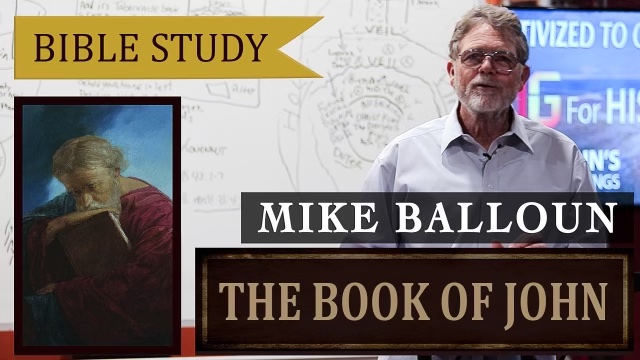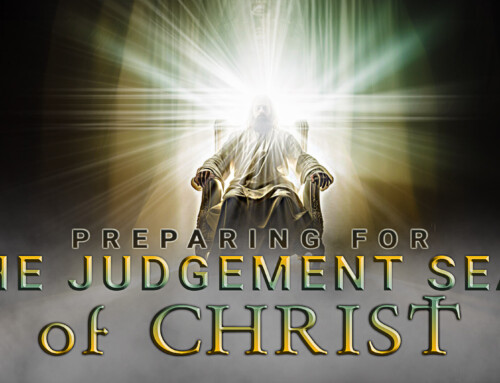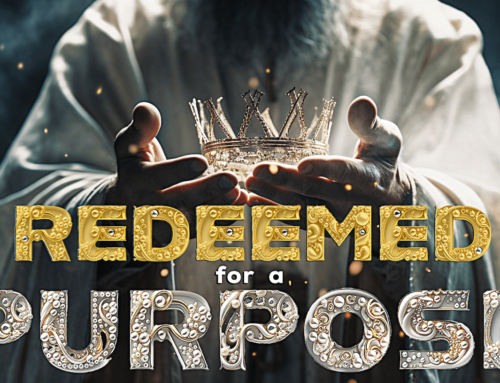THE BOOK OF JOHN CHAPTER 1:35-51
THE FIRST SIX DISCIPLES
VERSES: Psalm 139:1-8; Genesis 28:12-15; Mark 10:37-39; Isaiah 53:7
John the Baptist, when he was probed and challenged by the Priests and Levites was being tempted unto self-assertion (notable that it corresponded with the culminating of Christ’s Wilderness Temptation 40th day) as to who he might say he was, and be ‘somebody’ in the eyes of religious leaders. Yet he professed not to have had visions, nor revelations, nor was he the Messiah, nor the Prophet, nor even a prophet, nor Elijah, but only Isaiah’s prophesied voice crying in the wilderness “prepare ye the way!”
It had been 40 days in heightened reflection in what he had seen and what he had heard before in the years of his wilderness experience now in the light of what he had heard and seen at and since Jesus’ Baptism… and what it had meant to have been the forerunner for this One, for Who he was not fit to be even His slave. He probably wondered if he had fulfilled that which he toiled for and understood his calling to be? He could not but sense that he had reached the very height of his ministry calling, and without any fanfare, he humbly began to see that he must step back now and decrease in the light of this far greater One.
He had spent years in the Wilderness in dedicated faithful solitude, prayerfully meditating on the Scriptures, and hearing from the Spirit about that One Who had come for the fulfillment of all Isaiah’s Words; that of the Christ, Messiah, the Representative Israelite to the Gentile, the Priest, King and Prophet (Read the following verses after Isaiah 9:6; 11:1; 42:1; 52:13; and read Chapters 61 and 66). In this 2nd unexpected sighting of Jesus in two days, it became increasingly clear unto him that what he had been reflecting on these last 40 days, suddenly came into full light. That being that all the prophetic words of Isaiah which spoke of the Christ’ Coming and Calling, which he knew all very well and had so deeply committed to heart and mind (and also of his own role relative to it) all pointed toward Isaiah 53:7… “He was oppressed, and he was afflicted, yet he opened not his mouth: he is brought as a lamb to the slaughter, and as a sheep before her shearers is dumb, so he openeth not his mouth.” (See also Acts 8:26-35 where Philip explained to the Ethiopian eunuch these verses in Isaiah about Jesus.)
What John came to realize was that the institutional and sacramental meaning of the Priesthood and Sacrifices found their fulfillment in Jesus the Christ; as the ‘Lamb of God which taketh away the sin (sin in its singular totality; Adamic passed-on nature of sin as well as personal sin) of the world’. (It is not necessary to suppose that John the Baptist understood the fullness of God’s Salvation Plan in His Lamb, but it was always understood by Israel that the Messiah’s Savior-ship would ultimately extend to the World/Gentiles).
What John the Baptist saw was the climactic view of Israel’s Paschal Lamb, being the basis of all the sacrifices, brought into full focus, that being the two aspects of Christ’s Atonement through His death offering; redemption and fellowship. He must have known that all Isaiah’s and all Old Testament prophets words encompassed this realization in His Messianic Kingdom. That which he had been heralding; the Kingdom of heavens, Israel’s long awaited Kingdom promises, would only be realized in His exaltation sometime after His selfless act of pouring out His soul unto death, that which neither Pharisee nor Sadducee, Priest or Levite had ears to hear or eyes to perceive. “Thine eyes shall see the King in His beauty: they shall behold the land that is very far off.” [Isaiah 33:17] That is to say, the Lamb of God to be set as King in His Millennial heavenly Kingdom Glory. Revelation 5:11-13 gives us the destiny of the Paschal Lamb… “And I beheld, and I heard the voice of many angels round about the throne and the beasts and the elders: and the number of them was ten thousand times ten thousand, and thousands of thousands; Saying with a loud voice, Worthy is the Lamb that was slain to receive power, and riches, and wisdom, and strength, and honor, and glory, and blessing. And every creature which is in heaven, and on the earth, and under the earth, and such as are in the sea, and all that are in them, heard I saying, Blessing, and honor, and glory, and power, be unto him that sitteth upon the throne, and unto the Lamb forever and ever.”
VERSES 35-37 “Again the next day (the Sabbath day morning about 10am, appropriately the day closing the ministry of John) after John stood (taking notice of Jesus walking again at a distance), and two of his disciples (Andrew and John being with him); And looking upon Jesus as he walked, he saith, Behold the Lamb of God! And the two disciples heard him speak, and they followed Jesus”… Only these who would accept John’s testimony, unlike the Pharisees and Sadducees, would accept and follow Christ. The Baptist repeats himself “Behold the Lamb of God” this next day, which effectively releases and changes the course of 2 of his closest, if not the closest, disciples’ lives. John does not seek to stop them. The God-given heartfelt attitude of John the Baptist is seen in him saying,“He must increase, but I must decrease.”
VERSES 38-39 “Then Jesus turned, and saw them following, and (graciously and purposefully opened the way for discourse) saith unto them, What seek ye (reminds of “where art thou”)? They — said unto him, Rabbi, (which is to say, being interpreted, Master,) where dwellest thou?
He saith unto them, Come and see (this always the invitation to the ‘saved’ to dwell with Him). They came and saw where he dwelt, and abode with him that day: (where He dwelt from day to day was often an uncertainty as foxes have holes and birds have nests but the Son of man hath not place to lay his head… nevertheless Christ’s purposeful outcome was realized; their discovery of Him as the Christ/the Messiah) for it was about the tenth hour.” (Note that this disciple of the Baptist (John) notes the day and then the very hour {according to the Roman hour} that he met the Lord.)
VERSE 40 “One of the (but) two which heard John (the Baptist) speak, and followed him, was Andrew, Simon Peter’s brother.” (Here and in the next verse, John the Apostle pays special tribute to Peter as to mention him unnecessarily twice. The other disciple undoubtedly was John the writer of this Gospel {and 3 Epistles and the Book of Revelation, and who was the last of the original 12 Disciples to pass}, being one of the first two Disciples).
VERSE 41 “He (Andrew) first findeth his own brother Simon (first, as in before John finding his brother James), and saith unto him, We have found the Messiah (a bright and somewhat blinding addition to that discovery of John the Baptist to them of Christ as ‘The Lamb of God’. Their discovery and enthusiastic statement was more in accordance with that acute awareness of the prophetic timeframe in which they lived in which, according to Daniel’s prophecies, the Messiah would manifest as the One whose kingdom would never end), which is, being interpreted, the Christ.” (Note that Andrew and John tended to obscure or not understand the concept of Jesus coming as the suffering Messiah/sacrificial Lamb, as did Peter later, when he rebukes Christ for saying He was going to die.) Andrew (and John) having seen and spoken with Jesus the length of a day, are convinced of Him being the Messiah/Christ of God foretold by the prophets. They then desired to share the joyful and exciting discovery with their brothers; Simon and James.
VERSE 42 “And he (Andrew) brought him (Simon) to Jesus. And when Jesus beheld him, he said, Thou art Simon the son of Jona: thou shalt (hereafter thou shalt win the name and) be called Cephas, which is by interpretation, A stone.” Jesus perceived him; looked into his eyes and heart, and in the wisdom and authority of the Second Adam (Genesis 2:19) named him ‘Cephas’ or Peter, meaning a rock. (As First Adam had been given authority to name the animals, the 2nd Adam has authority to give a new name to Peter. He will rename those overcomers seen in Revelation 2:17 whose names are written on a rock which only He and they know). Thus on the first Sabbath following His Wilderness Temptation came the call of the *first 4 to be His Disciples {*it being the first Sabbath according to author Alfred Edersheim who beautifully brought this out in depth from a Messianic Jewish perspective}. This being a call unto the further call of fit Apostles which would be in the course of proper development (progressing from follower, to disciple, to apostle) seen over time in their renunciations of family, friends, occupation, home and all else for the Lord’s Service, even including the laying down of their own lives for most of them.
THE NEXT TWO DISCIPLES
VERSES 43-46 “The day following (Sunday) Jesus would go forth into Galilee, and findeth Philip (the 5th called to be a disciple), and saith unto him, Follow me. Now Philip was of Bethsaida, — the city of Andrew and Peter. (Bethsaida was later condemned because of its unbelief in Matthew 11:21.) Philip findeth Nathanael, and saith unto him, We have found him (or rather they were found of Him), of whom Moses in the law, and the prophets, did write, Jesus of Nazareth, the son of Joseph. ‘We have found Him’ answers to the time Scripturally foretold in which they lived, that of promised restoration of Israel’s preeminence in the Earth, and so Israel was full of anticipation of the Messiah coming. They had found Him/the prophesied Messiah Who the Old Testament writers wrote about; Who would bring Israel into the Kingdom promises.
This new disciple Phillip testified of the Truth; that of Jesus being that Christ prophesied to come by the Old Testament Writers then, in their time, to be manifest. Albeit his testimony was mistakenly leavened (understandably) with his calling Jesus the Christ the son of Joseph (Jesus not being the physical son of Joseph). The Lord mercifully uses us who but see through a glass darkly but all the while calls us to accountability in knowing maturity in our following of Him. May He grant us a spirit of wisdom and understanding in the knowledge of His Word and remove the damaging leaven from our testimony.
“And Nathanael said unto him, Can there any good thing come out of Nazareth? Philip saith unto him, Come and see.” Phillip’s answer echoes that of the Lord’s invitation to John and Andrew…”come and see.” Happily, they followed Christ the Messiah in anticipation of what that was supposed to be. They were unaware that over time, they would all be lead to drink of His cup of suffering and perfecting power of the Holy Spirit. (Mark 10:37-39) Are not all the ‘saved’ likewise first called?… ‘Come and see’ and we will dwell together followed by a heart swollen to testify to His wonder. And then onward in journey to follow Him and to be instructed; to search out the matter of the Messiah looking into the Scriptures, and to discover the whole Truth of Him, and then to work out our salvation of soul in fear and trembling through the painful path of learning of a slower methodical kind (as opposed to the illogical happy response to a few introductory words) unto overcoming conviction. Step by step, this path must be trodden, the encountered soul’s sufferings that, if heeded, perfects a man unto worthiness. But some Christians today, like the Priests and Levites who questioned John’s Scriptural forthright testimony, sadly hear yet refuse his deeper understanding of the One who has come; who pre-existed. Most have gone only so far as to listen to what their peers have said, that this and that is not Truth, and that is enough, they will go no further.
Is this seemingly condescending statement by Nathanael a question in light of their common knowledge of the kind of character of the Nazarenes in general? Probably to a certain extent, given their later intent of violence in their attack on the Lord. But it also speaks to Nathaniel’s knowledge of the Scriptures and questions here if anyone of spiritual stature is Written about that comes out of Nazareth? (John 7:52) The Lord, in hidden wisdom, never advertised His past or birthplace to establish from Scripture Who He was. The new disciples here, as others, are ignorant of His birth in Bethlehem. (Micah 5:2)
VERSES 47-51 “Jesus saw Nathanael coming to him, and saith of him, Behold an Israelite indeed, in whom is no guile. (See Psalm 32:2; 34:11-15) Nathanael saith unto him, Whence knowest thou me? Jesus answered and said unto him, Before that Philip called thee, when thou wast under the fig tree, I saw thee. (Psalm 139:1-8, 23-24) Nathanael answered and saith unto him, Rabbi (Master), thou art the Son of God (the possessor of Divine knowledge that readeth my most inward thoughts, surely the promised seed of David); thou art the King of Israel (the Son of God and King of Israel are seen and attested to very clearly in Psalm 2 and in Psalm 89). Jesus answered and said unto him, Because I said unto thee, I saw thee under the fig tree, believest thou (these Truths)? thou shalt see greater (confirming) things than these. And (looking on further than His 3 ½ years of confirming miraculous works/signs to Israel validating Him as Messiah) he saith unto him, Verily, verily, I say unto you, Hereafter (in the End Time events represented by Jacob’s Ladder) ye shall see heaven open, and the angels of God ascending and descending upon the Son of man.” (This title Son of man speaks to what God’s thought was for Man, to be fully realized in Christ. – Psalm 8:4-9; 80:17)
The Lord as the Son of Man reveals to those 6 followers His anointing of the Spirit of God upon Him in the calling of Nathanael to be His disciple. Who, but a short time before, obscured from sight under the fig tree, probably had been meditating on the hardships of Jacob, a zealous saved man but full of seemingly disqualifying guile. This is seen from Jacob’s early years leading up to his fleeing from his brother Esau, after having beguiled their father out of the First Born Blessing. God then gave Jacob the dream of promise and hope for him and his seed/Seed. (Genesis 28:12-15) And Jacob the grandson of Abraham, the son of Isaac, and now the first-born seed and heir of their promises, became “Israel” through many struggles, wrestlings and strong prayers. ‘Israel’ having the meaning: ‘He Has Become A Receptacle In Which God Can Be Received And Retained’. Nathaniel was likely meditating on these things of Jacob, the father of the 12 Tribes, who had been, much like their father, full of guile. Having been faced with many trials, tests, and sufferings, are they now to become truly ‘Israel’? Is it the time for God to fulfill His word of promise? The Messiah is said to be among us now…Will the promises accompanying this obscure dream of the ladder now be fulfilled? Is His Son the Messiah King alive and preparing to bring true Israel forth?
Jesus’ statement of Nathaniel having no ‘guile’ was possibly a revealing response to his ponderings about the guile and the prophetic meaning of the dream of Jacob while meditating unseen and alone under the fig tree. And what Christ essentially said to guile-free Nathaniel; I am the First-Born Seed, I am He, Whose inheritance includes the Land promised. I am true Israel in Whom the guile-less shall see Heaven truly open up. I am “Bethel” the House of God’s glory. I am the open Heaven unto Earth for intimate communication with God. I am the One Who led Jacob from Bethel to Jabok, where Jacob was confronted with a climaxing crisis, mortally wounded and emptied of self-life… and then as resurrected ‘Israel’, back to Bethel to abide. An Israelite indeed, in whom there is no ‘beguiling Jacob’, thou shall surely see heaven open and see Angels of God ascending and descending upon the Son of man!
Here, in that Word “…Hereafter ye shall see heaven open…”, in the first Sermon of our Lord addressed to Israel, is also found the NEW opportunity for the NEW Man.
Heaven was opened spiritually speaking with the Holy Spirit descending upon Jesus. And in that spiritual sense, where the unseen Holy Spirit has now come forth through Christ’s Cross and Resurrection, to those then that are now in Christ, in that sense Heaven is ‘open’ to us. But it is not in this present Age of Grace and Faith in the unseen sense, while Christ is in Heaven, that this promise to Nathaniel as the King of Israel was to be literally and fully realized.
Nathaniel owns Jesus as the Son of God and King of Israel. Moses and the Prophets of Old knew nothing of the ‘Body’ of Christ or its part in the Kingdom of Christ. It was hidden in the mind of God. But they did know the Christ was to be King over Israel. And He came as their King, yet they rejected Him. (Matthew 21:5) He was not received as King in His First Coming, but He will be manifest King in His Second Coming. The Messiah King will make the way for a New Covenant with the restored 12 Tribes of Israel. (Ezekiel 38) To this end, Jesus called His 12 Disciples.
Jesus owns guileless Nathaniel as one of His 12 to sit on thrones in judging the 12 Tribes of Israel. (Luke 22:29-30) King David’s throne is His, declared so at His birth and was His by right of prophecy and promise. (2nd Samuel 7:12-13; Luke 1:32-33) And lineage; to this His Gospel genealogy purposely answers. Kingship over restored Israel is to be His, but in the Father’s appointed time, that being only “when the fullness of the Gentiles be come in”. That is to say when that new work, which is yet in progress of establishing out of Gentiles a people for His Name, is completed. (Acts 15:14) Heaven is closed to Israel while ‘Hades’ is yet to be opened; then after satan has been bound and ‘Hades’ (the Bottomless Pit) being closed; then the heavens are opened and the blindness of Israel will be removed in the exposing light of their “…Deliverer, and shall turn away ungodliness from Jacob…” (Romans 11:25-26)
Christ here owns Himself as the Ladder of Jacob’s dream. He is the Son of God from the top rung (Heaven) and Son of Man and King of Israel from the lower rung (Earth). I have bridged the gap between Heaven and Earth. Now the whole Ladder is in Heaven… to be lowered in the power of the First Resurrection. The Words of John 1:50-51 have the 7th Millennial future rest of Israel in view. It is only then that the promise of the land’s possession can be had by Abraham and his seed/Seed. It is the Kingdom of Israel and its King that Nathaniel’s heart had been contemplating on under the fig tree. It is to then, unperceived at that time, that the Lord points Nathaniel by using the Old Testament prophetic dream of Jacob.
The Words following Genesis 28:12 are quite telling to its literal application, the declaration of God being the Lord God of Abraham and Isaac and “…the land whereon thou liest, to thee will I give it, and to they seed…” This is a Millennial promise to Abraham, Isaac, and Jacob and their seed/Seed; Christ yet unfulfilled. In this Age of ‘faith’, the unseen Angels of God are coming and going between the heavens and the earth in response and service according to this Age’s dictates of the mercy and grace provision of God in the Atonement authority of Christ obtained or drawn upon by faith in the unseen. He shall finally open the heavens up to the Earth as the Age changes to that of Righteousness and Justice and shall bring the Kingdom of heavens and its worthy residents (being the One New Man and Kingdom of earth’s worthy residents of Israel) together in one united Millennial Kingdom as their Mighty King; Ruler of All. (Ephesians 1:10)
Most telling of that prophetic sign of that ladder is that He, as the Son of God from Heaven, and Son of Man from Earth, (He having both natures) unites the Nature of the heavenly (God) with the Nature of the earthly (Man); as the New Creature, which is to be fully realized in the worthies of the First Resurrection. God unites the Godhead and Man through Christ; the Ladder. (Luke 20:35-36, Galatians 6:15, 1st Corinthians 15:45-53, Revelation 20:4-6)
In this first Chapter, John has revealed Jesus the Christ from 4 stand-points:
- as the eternal Son of God come down
- from His earthly standpoint as the Son of Man
- His future stand as the only Begotten for all to see Him in His Millennial Glory (John 1:14 with 2nd Peter 1:16-18)
- the future King of Israel, as all the prophets of the Old Testament declare. Fulfilling the meaning of the dream of Jacob literally; and to be seen and realized by Nathanael and his like in the ‘Hereafter.’ It is at the time of the Millennial Kingdom when Heaven will be truly open, and Angels will be seen ascending up to Heaven from the heavens of this world associated with Christ’s Kingdom on the errands of the Son of Man and descending from God in Heaven upon the Son of man in replies. John the Apostle had Jesus the Christ’s future Glory in view from the first verse of this Chapter.





Leave A Comment